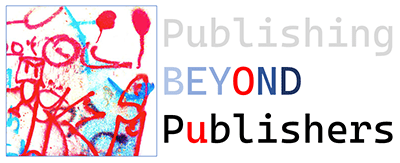It is all about the details! ReBoot’s workshop „Assessing the Damage“ identified winning and losing experiences in the international book business under the pandemic.
The season’s first workshop in the “ReBoot: Books, Business and Reading” on 25 Feb 2021 took off with promises of a wild ride between some countries and segments where the book trade significantly expanded, driven by an increase in reading, while other markets and segments of the industry had to confront loss and swings in consumer habits.

Print book sales in Germany, Austria and Switzerland 2011 to 2020 (data by MediaControl, analysis Ruediger Wischenbart Content and Consulting).
In Sweden, publishers recorded gains in revenue of 8.7% in 2020 – and a stunning surge of +21.5% in (mostly digital) units. For the first time digital overtook physical sales, and most of digital turnover was earned through audiobook subscriptions.
The USA saw 9% more copies shipped, while revenues stayed flat with +0.8%. The real drama however required to go into the details, as online sales surged by +43% in 2020, bringing print books up +8.2% in revenue, and ebooks +12.6%, while physical bookstores, drowned by -28.3%.
Germany (-2.3% in book revenue) and France (-4.5%), the two usually boringly robust European markets saw each an up and down along the Covdid-19 year, shaped by lookdowns and closures of bookstores, followed by bold interim recoveries, praised as proof for the resilience of the book sector. But again, a deep rift opened, setting apart the overall market performance from a much more challenged brick and mortar retail sector, where turnover dropped by -8.7% and unit sales even by -12%.
In Poland, unit sales were remarkably robust, but returns fell off quickly, as heavy discounting led to price wars. E-commerce moved mainstream even in countries with a particularly low digital penetration, like Greece.
Overall, the ReBoot workshop provided data and analysis on some 20 different territories all over Europe and the Americas, covering namely Argentina, Austria, Brazil, China, Finland, France, Germany, Greece, Portugal, Sweden, Norway, Turkey, UK, US, and by industry segment fiction and nonfiction, as compared to children and young adult, as well as by formats and sales channels – notably print, ebooks, audiobooks, e-commerce, and subscriptions, as well as digital library lending.
In many countries publishers found themselves in a stronger position than retailers. Pandemic sales hit hardest the big chain bookstores, while giving some advantages to small independents and, of course, online (or omni channel) shops. Digital library loans soared. Backlist titles gained ground, while front-list – put aside a few blockbusters – saw their share in decline. And in many parts of the industry, new alliances and new fields for experimentation opened.
We are grateful to all participants, and in particular to those sharing their insights and learnings, including Andrew Albanese (US), Johanna Brinton (UK), Carlo Carrenho (BR/SE), Giacomo D’Angelo (IT), Sonia Draga (PL), Michalis Kalamaras (GR), Thad McIlroy (US), Gerson Ramos (BR), Enrico Turrin (BE/EU), and Burcu Ürsin (TR).
A complete video recording of the session, and presentations with rich data and detail, will be made available to all registered ReBoot members in the ReBoot Box.
Register now at www.rebootbooks.org to get your pass offering access to the Box and to the next Reboot events on April 21st and June 15.
We thank our sponsors Media Control and the Austrian Ministry of Culture for their crucial support.
NEW: The Virus and the Books A Special from the Digital Consumer Books Barometer!
How did the Covid-19 sanitary crisis and the resulting lockdown impact on the ebooks and audiobooks consumption? Measuring transformative change, and lessons to learn for marketing digital consumer books:
- Flat subsription models on the rise;
- Ebooks successful beyond genre fiction;
- Smart and highly targeted PR and marketing effective in gaining new consumer groups.
Free download from www.global-ebook.com – a Bookwire Insights report!
More on digital sales analysis in the Digital Consumer Book Barometer is a deep dive into today’s ebook and digital audio sales in Canada, Germany, Italy, the Netherlands, Spain and English Imports:
- 3 years of sales data history;
- Sales by price segment and country comparisons;
- Comparisons by units and revenue;
- Lifecycle of top selling titles;
- Sales by genre.
Barometer for free download at www.global-ebook.com
Sponsored by
What are book statistics good for: Why in times of change, having a road map is critical.
Publishers are challenged by declining book markets, a changing readership drifting away from books, as much as new competition from other content and formats – AND by the messy data that are available to build a realistic assessment of what is going on in the first place. And yet, book statistics are seen as a fairly exotic topic.
In a brand new article in the journal Logos , together with three dear colleagues, Angus Philips of Oxford Brooks, Adriaan van der Weel of Leiden and Miha Kovac of Ljubljana University, we argue why those numbers on books are key to developing a road map for navigating the current transformation, and how better statistics for a broad set of stakeholders – including publishers, booksellers, librarians, policy makers, media and educators – can be generated.
Brill > Logos, vol. 28/4 – https://brill.com/logos
Direct link to purchase article at Brill Online shop.
Why must ebooks be so complicated? Sharing Joe Wikert’s hopes&wishes for 2016
Instead of making predictions about publishing in 2016, Joe Wikert, the wise man, opts for formulating what he wishes to happen. And so in a very hands on way. I (almost) fully share his hopes!
Aside from the obvious („less DRM„), the well intended (making it easier for publishers to directly interact with their readers, and consumers (which gets so much easier, once DRM is skipped), and the fancy („new sustainable unlimited ebook subscriptions“ – here I am more doubtful, yet acknowledge Joe’s background with O’Reilly’s pioneering „Safari“ service), I am all enthusiastic for his last wish: „Better notes and annotations, outside the book„.
If you read for work, for education or simply for fun, chances are high that you have our little scheme of annotating (and sharing) what you read. Some use those bright marker pens, which others despise, and instead use a tiny pencil to underline, or comment. Personally, I discreetly underline, with a pencil, then annotate, or simply make a reference at the blank pages that can be found at the end of almost any book. So even many years later, I can find what had preoccupied my mind when reading a work.
Not so with ebooks. With digital reading being still in its very early days (yes!), chances are high that, since my initial reading of a book, I have moved on to a new reading gadget and software – so that my notes are all gone.
Is anyone surprised why college or university students rather opt for paper? Disregarding that they consume any other content digitally, and in usages that are integrated with their social networks and friends?
Given that oddity, is anyone still wondering why ebooks currently have such a hard time to reach audiences beyond those early adopters, and the strongest readers of (fast) fiction?
How many of us have, in the meantime, opted for, and integrated into their information and exchange routines something like Evernote (or any other platform to organize thoughts, todo lists, shopping lists, references to music and movies one would want to consume. Yet this is not available for digital books.
Saving and sharing has become so seamless for almost anything – including reading, done on the web (with Instapaper, or GetPocket). Though not for reading a book.
Hence my simple question, together with Joe Wikert: Why must ebooks be so complicated? I just don’t know.
Publishers Forum 2015 – join us with leading minds and practitioners of the book business on April 27&28 in Berlin
A long list of outstanding speakers has been announced for the Publishers‘ Forum which is to open in Berlin in just two months.
The ambition is to combine strategic outlooks for an industry in full transformation, with hands-on practical advice in key challenges ranging from investment strategies, to strategic IT decisions, to how publishing houses can integrate a new Direct-to-Consumer approach in marketing. But also the old practices, and working relationships, will be debated with their new opportunities, by taking a fresh look at the ties between the author and the publisher, the changing cultures of readers versus new fan audiences, or in extending book publishing into new formats, and more complex value chains.
Confirmed speakers include many top executives from both leading German and international houses, like Jacob Dalborg, CEO Books at Bonnier Media Group, Timo Steinberg, CEO of Edel, Birte Hackenjos, MD of professional publisher Haufe Group, Volker Smid, CIO of Holtzbrinck Group, or Lance Fensterman, Executive VP of ReedPop (and head of New York Comic Con).
Conference attendants will be introduced to many innovative ventures, including new full color on demand printing technologies (from BoschDruck/Canon, but also from BOD and CPI companies), cutting edge database services (e.g. from MarkLogic), firsthand insights on subscription (or flat rate) ebook providers (Skoobe, Mofibo), or the innovative concept of a multi media company spanning from books to TV to the web (Red Bull Media House).
More details and registration are open now.
Why the protest of authors in the Amazon vs. publishers fight opens a new chapter
With the authors stepping into the arena, the current controversy between Amazon and major publishing groups – so far: Hachette and Bonnier – brings into the debate the fundamental quality it deserves. What we are seeing is in fact a watershed moment in the evolution of the digital economy for cultural content.
In an essay, and manifesto, in Perlentaucher (in German), I argue why this is so important, and why 3 lines of action will be needed to maintain a balanced and diverse ecosystem of writing, publishing (plus distribution) and reading:
- Assure a fair economic context that does NOT play to the advantage of global players against locals (with the new European tax regimes being a good step in the right direction);
- Reform and adapt copyright to meet today’s cultural consumer practices, by notably introducing a concept of „fair use„, backed up with transparent compensation for authors and other creators of works;
- Open and encorage not-for-profit environments for the production and dissemination of those works of art and culture that cannot be sustained commercially under today’s circumstances.
A more detailed English summary will follow here.
Reading is changing, for sure. In the networks, obviously. But what does this mean?
I’m not sure if I embrace all the casualness in this piece on „networked reading“ in The Guardian. But the short article certainly formulates several very important questions with regard to reading.
Reading habits are probably the next frontier in what is changing in the ecosystem of the book (and readers, and authors);
This change will be driven by readers networking their reading experience – plus thoughts, notes, references – through the (social) networks in which they are active;
Today’s biggest behemoths with their highly walled, closed gardens – Amazon, Apple, perhaps also Facebook – may lose ground here quickly; except if they just spend a few zillions to acquire all those new universes; but that would be both sad, and not really plausible;
The process will surely be disruptive for that late 19th century reading concept that overemphasizes the lone, solitary and individual book lover who gets lost in the text, without bothering to share the discoveries even with their closest friends; instead the other pactice of reading, as a magnificent generator of communication, will grow far beyond of what we know today.
But control – social control and mind control – will be a highly critical issue indeed.



